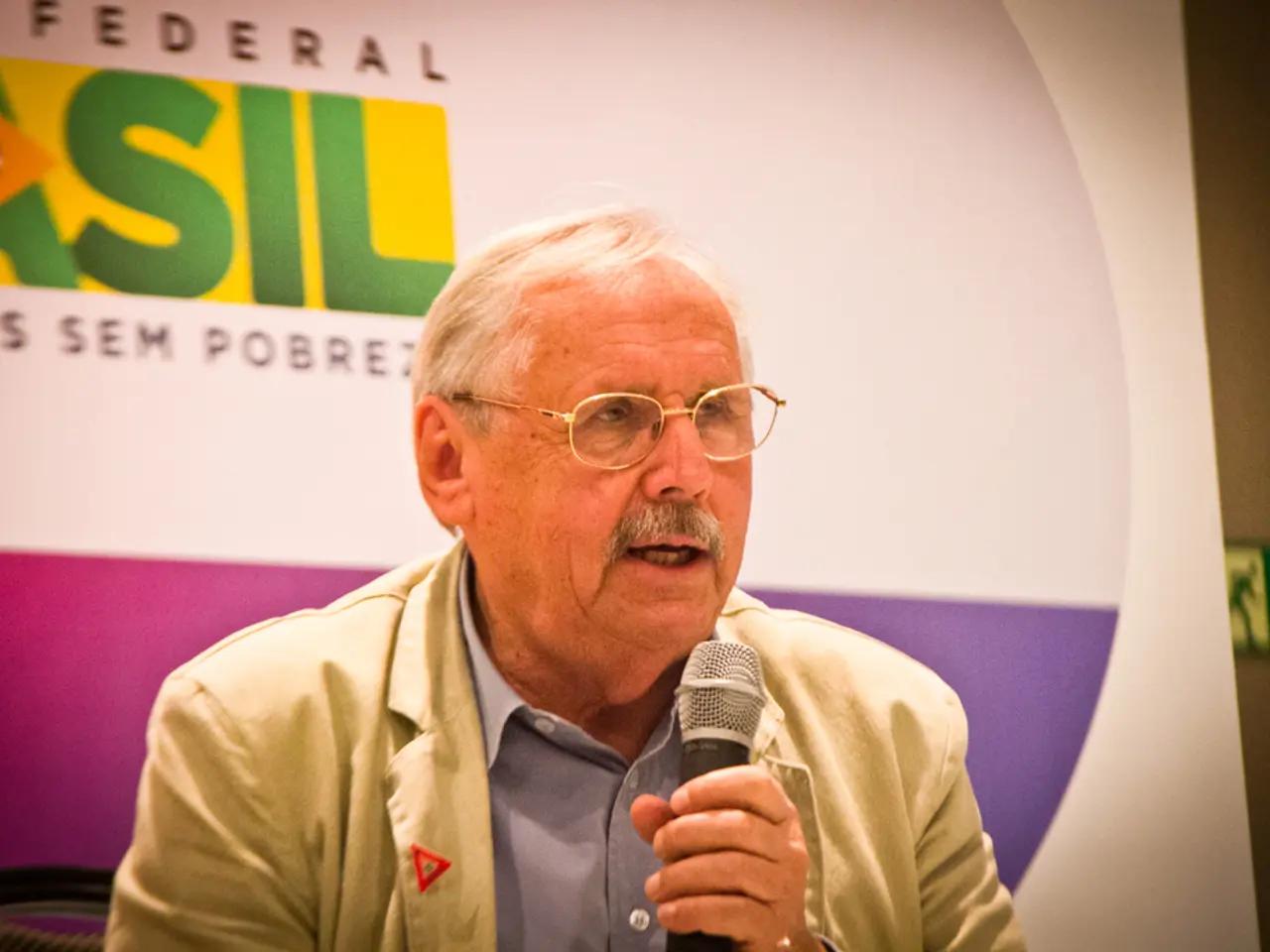Public discourse between the Defense Ministry and the Armed Forces, as emphasized by Rinkevics, is crucial for countering misinformation.
In a recent meeting, the Latvian Cabinet of Ministers discussed and approved a draft law on the establishment of anti-mobility infrastructure, which was subsequently submitted to Saeima, the Latvian parliament [1]. This move comes as the country faces increased security threats from its eastern border, with the 2025 state budget and defense spending also being discussed during the meeting, according to Minister Dregeris [2].
Amidst these discussions, President Edgars Rinkevics emphasized the importance of regular dialogue between the Defense Ministry, the National Armed Forces, and the public to prevent disinformation campaigns. He highlighted the need for transparency and factual communication to debunk false claims, such as the fabricated story about a Latvian border guard killed by a mine, which Russian propaganda has used to undermine trust in Latvian authorities and portray border reinforcements as harmful to citizens [1][3].
To counter Russian propaganda efforts, Latvia's Defense Ministry and National Armed Forces are actively addressing disinformation campaigns related to the situation on Latvia's eastern border and border reinforcement measures. They do this through a combination of public education, media literacy, and strategic communication [3]. The aim is to cultivate awareness and preparedness against hybrid threats including cyberattacks, disinformation, and propaganda.
The Latvian government is aware that Russian disinformation campaigns aim to sow mistrust, create confusion, and portray Latvia's security measures as provocative or dangerous. In response, they actively monitor and publicly rebut false narratives and emphasize the actual security context [1][5]. For instance, Latvia currently complies with international mine treaties despite parliamentary decisions signaling future changes.
In the broader security context, Latvia coordinates internationally to monitor hybrid threats such as drone incursions from neighbouring adversaries, which often accompany disinformation efforts as part of a comprehensive hybrid warfare strategy from Russia. Such combined efforts underscore Latvia's multidimensional approach to border security, combining physical reinforcement with robust information integrity defenses [4].
President Rinkevics, along with Ministers Bergmanis and Latkovskis, also agreed on the importance of dialogue with regional heads and residents bordering Russia and Belarus regarding planned border reinforcement measures [6]. Rinkevics plans to visit the eastern border in late August to assess the progress of infrastructure construction, implementation of technological solutions, and military reinforcement [7].
In summary, Latvia is taking proactive measures to debunk false reports propagated by Russian disinformation to maintain public trust [1]. The Defense Ministry promotes education, media literacy, and civilian-based defense to increase resilience against disinformation and cyber threats [3]. Transparency about border reinforcement measures counters narratives suggesting these endanger citizens, while emphasizing the real threat posed by Russia [1][5]. Latvia actively monitors and counters broader hybrid tactics, including drone incursions and cyberattacks, which complement disinformation campaigns [4]. These measures reflect an integrated defense posture combining physical security enhancements with proactive information warfare countermeasures.
- In the realm of 'politics' and 'policy-and-legislation', Latvia's Cabinet of Ministers has proposed a draft law on the establishment of anti-mobility infrastructure, aiming to bolster the country's 'defense' against potential threats from its eastern border.
- The Latvian Defense Ministry and National Armed Forces are actively engaged in 'war-and-conflicts' and 'general-news' spheres, implementing strategies to counter Russian propaganda efforts, particularly focusing on debunking disinformation relating to the security situation on their eastern border.







